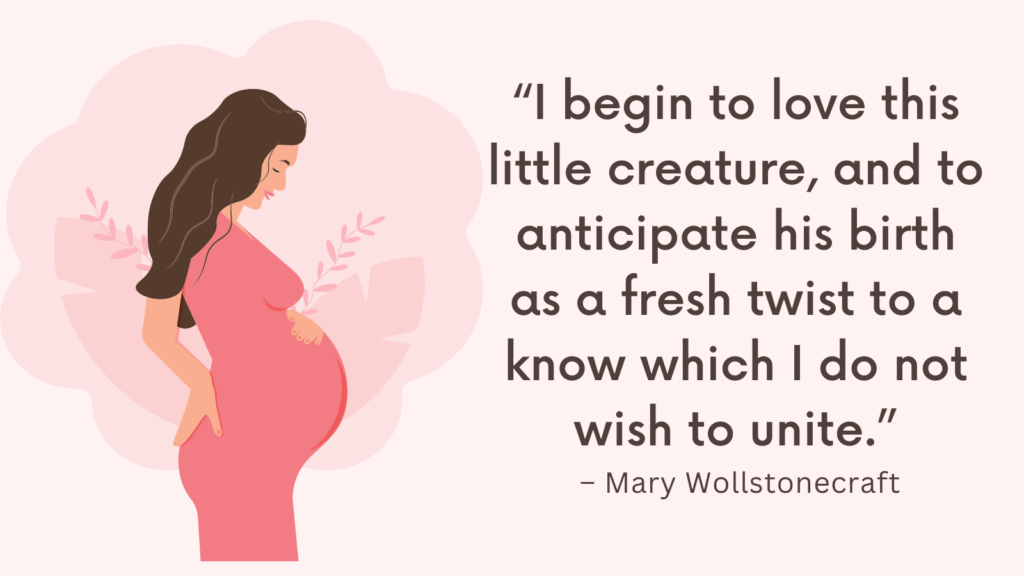Frequent Braxton Hicks, baby settling into birth position, and lightening (baby dropping).
You’re 36 weeks pregnant! You’re now in your final month of pregnancy, and your baby is almost ready for birth! This week, your baby is gaining weight, practicing breathing, and moving into the final position. Meanwhile, your body is preparing for labor, and symptoms may feel more intense.
Let’s explore your baby’s development, changes in your body, and how to manage symptoms at 36 weeks pregnant.
What’s Happening to Your Baby?
At 36 weeks, your baby is about the size of a papaya (32-36 cm or 13-14.5 inches long, head to toe) and weighs around 2,700-3,000 grams (5.9-6.6 lbs). Your little one is getting stronger, growing quickly, and almost fully developed!
Major Developments This Week:
Brain & Nervous System are Fully Developed! – Baby’s brain is working, and they can control basic functions like blinking, sucking, and breathing.
Lungs are Fully Mature! – If baby were born this week, they’d likely breathe on their own with little to no medical support.
Movements May Feel Different! – Baby is running out of space, so you’ll feel more rolls and nudges instead of strong kicks.
Baby is Dropping! – Many babies “engage” (move lower into the pelvis) in preparation for birth, which may relieve pressure on your lungs.
Fat Deposits Continue to Increase! – Baby’s skin is plumper and less wrinkled.
Digestive System is Preparing for Life Outside! – Baby has been swallowing amniotic fluid, which helps mature their digestive system.
What’s Happening to Your Body?
At 36 weeks pregnant, you may experience stronger baby movements, weight gain, and late-pregnancy symptoms.
Common Symptoms at 36 Weeks Pregnant:
Feeling Baby’s Movements More Regularly! – Less room means more rolling, shifting, and stretching instead of sharp kicks.
Larger Baby Bump! – Your uterus is at its highest, nearly reaching your ribcage.
Back Pain & Pelvic Pressure – Baby’s weight and position are putting pressure on your lower back and pelvis.
Braxton Hicks Contractions – Mild, irregular contractions are becoming more frequent.
Shortness of Breath (Relief May Come Soon!) – Once baby drops, you may be able to breathe more easily.
Swelling in Feet & Ankles (Edema) – Fluid retention may cause mild swelling, especially after standing.
Heartburn & Indigestion – Your growing baby may push stomach acid upward, causing reflux.
Leg Cramps & Restless Legs Syndrome – Circulation changes can trigger discomfort, especially at night.
Frequent Urination – Baby’s head is pressing on your bladder, making bathroom trips more frequent.
Leaky Breasts (Colostrum Production) – Your body is producing early breast milk in preparation for feeding.
Fatigue & Trouble Sleeping – Finding a comfortable sleep position is even harder.
How to Cope with Week 36 Pregnancy Symptoms
1. Tracking Baby’s Movements
Baby should move at least 10 times in 2 hours.
If movements slow down significantly, drink cold water or gently poke your belly.
Contact your doctor if you notice decreased movement.
2. Easing Back Pain & Pelvic Pressure
Use a pregnancy pillow for support.
Wear a belly support band to relieve strain.
Do gentle prenatal yoga or stretches.
3. Managing Braxton Hicks Contractions
Stay hydrated – dehydration can trigger contractions.
Change positions – walking or resting may help.
If contractions become painful or regular, contact your doctor.
4. Relieving Shortness of Breath
Sit and stand up straight to give your lungs more space.
Take slow, deep breaths and avoid overexertion.
Sleep propped up with pillows for better airflow.
5. Reducing Swelling in Feet & Ankles
Elevate your feet when sitting or lying down.
Wear compression socks to improve circulation.
Drink plenty of water to flush out excess fluids.
6. Soothing Heartburn & Indigestion
Eat smaller, more frequent meals.
Avoid spicy, greasy, and acidic foods.
Don’t lie down immediately after eating.
7. Preventing & Treating Leg Cramps
Stretch your legs before bed.
Eat magnesium and calcium-rich foods (bananas, nuts, dairy).
Massage your legs or apply heat if cramps occur.
8. Improving Sleep & Fighting Fatigue
Use a pregnancy pillow to support your belly and legs.
Try sleeping on your left side for better circulation.
Take naps during the day if needed.
9. Preparing for Breastfeeding (If Planning to Nurse)
Wear breast pads if colostrum is leaking.
Read about breastfeeding positions and benefits.
What Should You Be Doing in Week 36?
Since you’re only 4 weeks away from your due date, here’s what to focus on this week:
1. Keep Attending Weekly Prenatal Appointments
You’ll likely start seeing your doctor every week now.
Your doctor may check your cervix for dilation and baby’s position.
2. Start Kick Counting Daily
Monitor baby’s movements at the same time each day.
If movements decrease significantly, contact your doctor.
3. Keep Taking Your Prenatal Vitamins
Ensure your vitamin contains 400-800 mcg folic acid for brain and spinal cord development.
A vitamin with DHA & Omega-3s supports baby’s brain growth.
4. Finalize Your Birth Plan
Discuss pain relief options (epidural, natural, etc.) with your doctor.
Look into hospital or birthing center policies.
5. Sign Up for Childbirth & Parenting Classes
Learn about labor, newborn care, and breastfeeding.
Consider partner or support person classes.
6. Prepare for Maternity Leave
Confirm your maternity leave start date and work transition plan.
Make sure all necessary paperwork is completed.
7. Pack Your Hospital Bag
Include comfy clothes, toiletries, baby outfits, and important documents.
Make a checklist of last-minute items to grab before heading to the hospital.
8. Finalize Your Baby Essentials
Ensure you have newborn necessities like diapers, onesies, and a crib.
Install the car seat if you haven’t yet!
Final Thoughts
You’re 36 weeks pregnant and almost there! Your baby is fully developed, gaining weight, and preparing for birth. Symptoms like back pain, heartburn, and fatigue may be intense, but you’re doing an amazing job!



